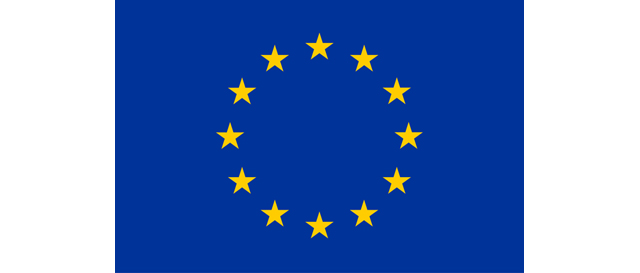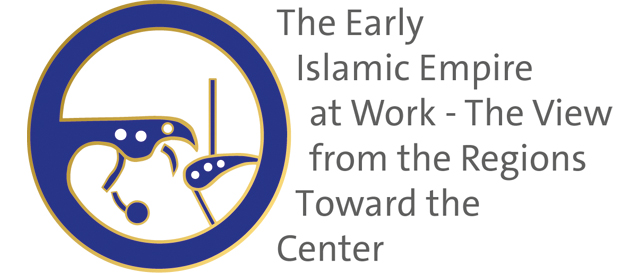Prof. Dr. Stefan Heidemann

Photo: © UHH/ Naue
Professor
Islamic Studies
Address
Office
Contact
Key aspects of activity
- Principal Investigator
Stefan Heidemann is now one of the Directors of the RomanIslam Center. For further information on the Center for Advanced Study “RomanIslam - Center for Comparative Empire and Transcultural Studies”, please refer to the RomanIslam website.
Profile
Over the past years I have become known as a historian of the Middle East who has an equal command of the study of literary and legal sources, material culture, numismatics, and archaeological evidence. I focus mainly on periods of transition and economic and cultural change in Islamic societies. Most prominent among my studies figure the formation of the early Islamic Empire, the apogee of the Abbasid Empire and the formation of the Middle Islamic civilization in the 12th and 13th centuries. I work with archaeological missions from Portugal to Mongolia, yet most of whom excavate in Syria.
Five major research projects emerged from this interest:
- The Early Islamic Empire at Work – The View from the Regions Toward the Center (ERC funded)
- Al-Raqqa at the Euphrates: Urbanity, Economy and Settlement Pattern in the Early Islamic Period
- The Middle Islamic Period: Social, Economic and Cultural Transformations in Syria and Northern Mesopotamia
- Coinage, Commerce and Taxation in the Eastern Mediterranean in the Late Middle Ages. (GIF funded)
- A Survey of Islamic Numismatics
- The Balkh Art and Cultural Heritage Project (BACH)
In addition, I pursue currently a number of specific interests, the Abbasid invention of brass, Syriac and Arabic lead seals of the eleventh century, the development of metalwork and neo-Mamluk art in the nineteenth century and the use of medieval history in modern visual political discourse as specific form of cultural memory, and the history of Oriental studies.
The interest in material culture, as source for the societies creating it, lead me to be member of a number of collaborative research projects, and working groups, among them
- The Balkh Art and Cultural Heritage Project
- KENOM - Co-operative Indexing of Object Data of Coin Collections
- Seljuq Figural Stucco Research Network (Coordinator)
In order to foster dissemination of knowledge in these fields I developed research-oriented classes in material culture as source for the societies creating it for Hamburg's students and those from other universities in the form of international webinars, and workshops for example in the US, Afghanistan (BACH) etc.
As a teacher in Islamic Studies, coming from modern development economics and working on Early and Middle Islamic civilizations, I offer a wide range of undergraduate and graduate courses on language, religion, culture, history, and politics of the 19th and 20th centuries. An important aspect in all of my classes whether they are about the development of Islamic thought, law, cultural practice and institutions, is the understanding of their historical, geographical, and economic contextes.
[ more ]
CV
|
Oct. 2011 to date |
Professor of Islamic Studies at Universität Hamburg. |
|
Oct. 2010 - Sep. 2011 |
Professor of Islamic History and Artistic and Material Culture at The Bard Graduate Center, New York, Associate Curator of Islamic Art, Metropolitan Museum of Art, New York, and Private Lecturer in Islamic Studies at Jena University. |
|
Aug. 2009 - July 2010 |
Visiting Professor in Islamic Artistic and Material Culture, and Islamic Numismatics at The Bard Graduate Center, New York. |
|
Oct. 2010 to date |
Advisory function for the Oriental Coin Cabinet Jena and the Alphons-Stübel Collection of Early Photographs from the Middle East at Jena University |
|
Oct. 2002 - Sep. 2010 |
Senior assistant professor and associate professor, Semitic Philology and Islamic Studies at Jena University. |
|
Oct. 2001 - Sep. 2002, April - Sep. 2003 |
Visiting full professor at the Orientinstitut, Leipzig University. |
|
Oct. 2000 - Sep. 2001 |
Research assistant at Jena University. |
|
Oct. 1994- Sep. 2000 |
Research assistant at Jena University. |
|
Oct. 1994 - Sep. 2010 |
Coordination of the Oriental Coin Cabinet Jena and the Alphons-Stübel Collection of Early Photographs from the Middle East at Jena University |
|
2001 |
Post doc (Habilitation) in Islamic Studies at Jena University. Thesis: "Die Renaissance der Städte (The Renaissance of the Cities)" (see monographs). |
|
1993 |
Dr. phil. (PhD), summa cum laude, Free University Berlin. Thesis: "Das Aleppiner Kalifat (The Caliphate of Aleppo) (A.D. 1261)" (see monographs). |
|
1991 |
M.A. Islamic Studies, Free University Berlin. |
|
1982-1991 |
Study of Economics, Islamic Studies and Modern History in Regensburg, Damascus, Cairo, and Berlin. |
Publications
Hannah-Lena Hagemann & Stefan Heidemann (eds.). Transregional and Regional Elites: Connecting the Early Islamic Empire. The Early Islamic Empire at Work Vol. 1. Studies in the History and Culture of the Middle East, 36. Berlin: De Gruyter, 2020. Transregional and Regional Elites – Connecting the Early Islamic Empire
Stefan Heidemann. “ Regional and Transregional Elites: Connecting the Early Islamic Empire”. Al-ʿUsur al-Wusta 24. (2016): S. 152-158.Al-ʿUsur al-Wusta, Vol. 24 (2016)
Stefan Heidemann. “How to Measure Economic Growth in the Middle East? A Framework of Inquiry for the Middle Islamic Period. ”. (2015): S. 30-57.Heidemann 2015 How to Measure
Stefan Heidemann. “Münzgestaltung als Spiegel von Kontinuität der Antike und Rückbesinnung auf vorislamische Epochen (Coin Design as Mirror of Continuity of Antiquity and Re-Collection of Pre-Islamic Periods)
”. Häuser der Weisheit – Wissenschaft
im Goldenen Zeitalter des Islam
. Hg. Mercator-Gesellschaft in Verbindung mit Stadt Duisburg, Kultur- und
Stadthistorisches Museum Duisburg
. Mainz: Nünnerich-Asmus, 2015, S. 24-29. 2015_Heidemann - Haeuser 2015-Muenzgestaltung
[ more ]
Stefan Heidemann. “Memories of the Past? The ‘Classical’ or the ‘Sunni Revival’ in Architecture and Art in Syria Between the Mediterranean and Iran in the 12th and 13th Centuries.”. (2013): S. 9-22.Heidemann 2013-Memories of the Past



